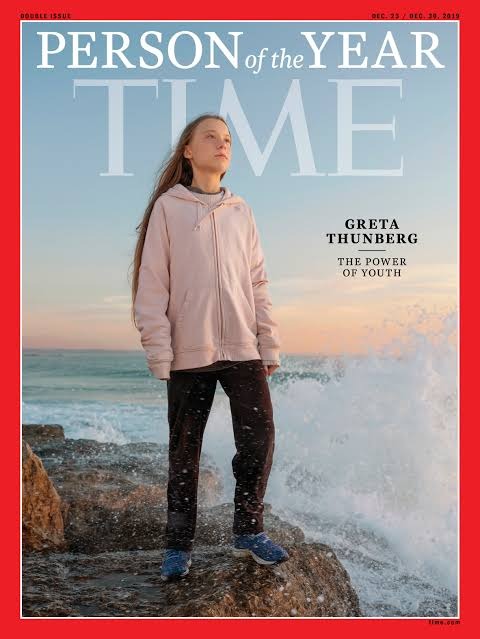Greta is 16 years old, she has Asperger’s syndrome, which means she doesn’t operate on the same emotional register as many of the people she meets. She dislikes crowds; ignores small talk; and speaks in direct, uncomplicated sentences. She cannot be flattered or distracted. She is not impressed by other people’s celebrity, nor does she seem to have interest in her own growing fame. But these very qualities have helped make her a global sensation. Where others smile to cut the tension, Thunberg is withering. Where others speak the language of hope, Thunberg repeats the unassailable science: Oceans will rise. Cities will flood. Millions of people will suffer.
 “I want you to panic,” she told the annual convention of CEOs and world leaders at the World Economic Forum in Davos, Switzerland, in January. “I want you to feel the fear I feel every day. And then I want you to act.”
“I want you to panic,” she told the annual convention of CEOs and world leaders at the World Economic Forum in Davos, Switzerland, in January. “I want you to feel the fear I feel every day. And then I want you to act.”
Greta is not a leader of any political party or advocacy group. She is neither the first to sound the alarm about the climate crisis nor the most qualified to fix it. She is not a scientist or a politician. She has no access to traditional levers of influence: she’s not a billionaire or a princess, a pop star or even an adult… yet, she has found the courage to speak truth to power and become the icon of a generation.
Thunberg, 16, is the youngest individual to be recognized. She gained international attention for excoriating world leaders for their inaction in the climate crisis in a viral speech she made at the UN Climate Action Summit in September. She criticized world leaders again at the COP25 conference last week.
“Thunberg has become the biggest voice on the biggest issue facing the planet—and the avatar of a broader generational shift in our culture that is playing out everywhere from the campuses of Hong Kong to the halls of Congress in Washington,” Time editor-in-chief Edward Felsenthal wrote.
Each year, the magazine features the most influential person, group, movement or idea of the previous 12 months. Last year, it was “The Guardians,” a group of journalists who have been targeted or assaulted for their work. In 2017, it was “The Silence Breakers,” the group of people who came forward to report sexual misconduct. This marks the third year in a row in which Time has named a person who was not a world leader.
Past “Persons of the Year” include: Adolf Hitler, Ayatollah Khomeini, Joseph Stalin and Donald Trump.
As Felsenthal unveiled the Person of the Year on the “Today” show, he shared more about Thunberg’s rise from seemingly nowhere. “She was a solo protestor with a hand-painted sign 14 months ago. She’s now led millions of people around the world, 150 countries, to act on behalf of the planet,” Felsenthal said.
After recognizing “The Guardians” last year, Time created a new category to recognize a different group of “Guardians” — those who took to the stand and risked their careers in the defense of the rule of law. The public servants in this category include the whistleblower, Marie Yovanovitch, Ambassador William Taylor, Fiona Hill, Lieut. Colonel Alexander Vindman and Mark Sandy.
Time chose to select category winners instead of recognizing runner-ups in part because the magazine is now independently owned and no longer a part of a conglomerate, Felsenthal told CNN Business. Salesforce CEO Marc Benioff and his wife Lynne Benioff bought Time Magazine from Meredith Corp last year.
The Yucatan Times
Newsroom


